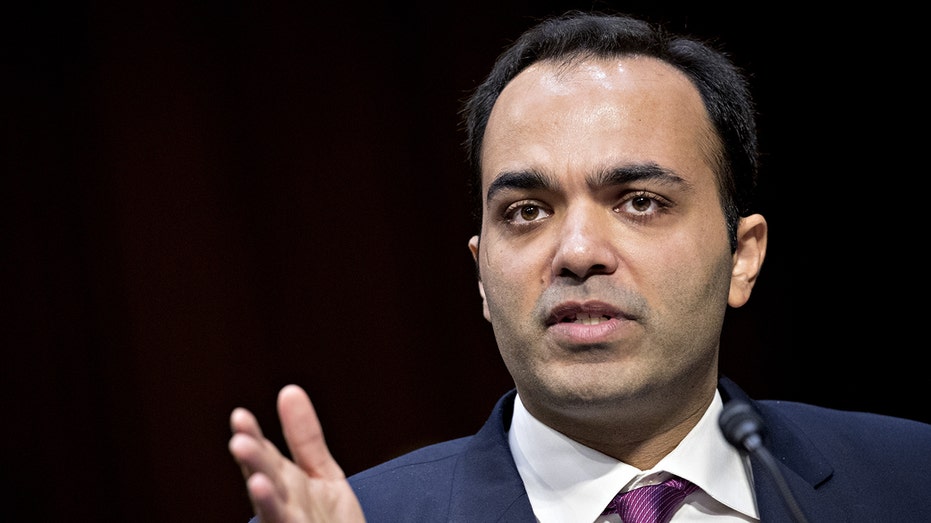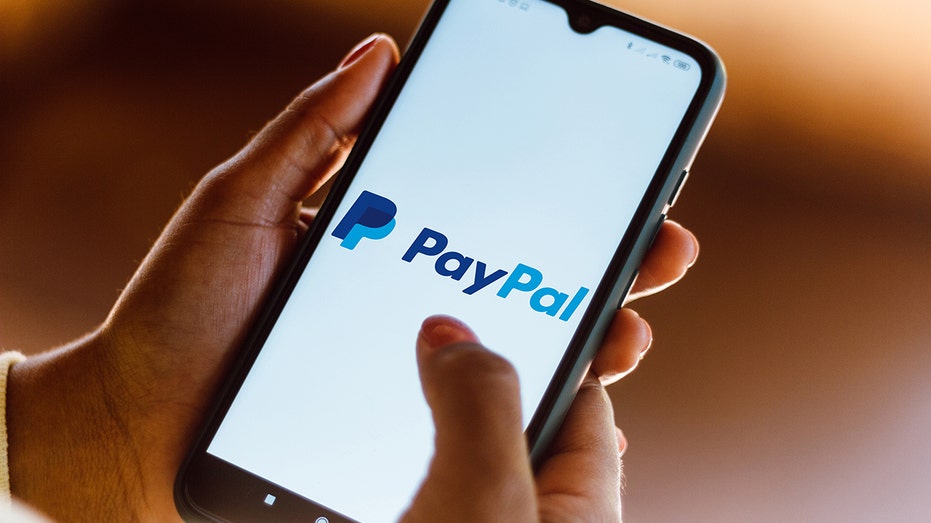Consumer Financial Protection Bureau probes 'buy now, pay later' credit
The CFPB has ordered Affirm, Afterpay, Klarna, PayPal, and Zip to hand over information
Ryan Payne 'hard-pressed to think anything will stop the consumer this holiday season'
Payne Capital Management President Ryan Payne and Oppenheimer Managing Director Brian Nagel discuss the impact of the new coronavirus omicron variant on consumer spending.
The Consumer Financial Protection Bureau announced Thursday that it has launched an investigation into companies that offer so-called "buy now, pay later credit," sending letters to several firms such as PayPal demanding information on the operations.
The agency, which aims to ensure lenders treat borrowers fairly, says it opened the probe due to concerns over folks accumulating debt and managing payments through frequent use of "buy now, pay later" options, which allow borrowers to break purchase payments into installments.

Consumer Financial Protection Bureau Director Rohit Chopra (Photographer: Andrew Harrer/Bloomberg via Getty Images / Getty Images)
"Buy now, pay later is the new version of the old layaway plan, but with modern, faster twists where the consumer gets the product immediately but gets the debt immediately too," CFPB Director Rohit Chopra said in a statement. "We have ordered Affirm, Afterpay, Klarna, PayPal, and Zip to submit information so that we can report to the public about industry practices and risks."
| Ticker | Security | Last | Change | Change % |
|---|---|---|---|---|
| AFRM | AFFIRM HOLDINGS INC. | 57.95 | +0.92 | +1.61% |
| APT | ALPHA PRO TECH | 5.36 | +0.40 | +8.06% |
| PYPL | PAYPAL HOLDINGS INC. | 41.15 | +0.73 | +1.81% |
CFPB RELEASE NEW MORTGAGE SERVICING RULE: WHAT IT MEANS FOR HOMEOWNERS
The CFPB said that consumers' use of BNPL products has surged during COVID-19 and that there was "massive growth" in their use over the Black Friday and Cyber Monday holiday shopping weekend.
The federal regulator is also concerned that the companies might not be fully following required consumer protection laws, and is looking into the data collection practices of the firms through their services.
A PayPal spokesperson told FOX Business in a statement reacting to the probe, "Our customers trust us to be transparent and we take this responsibility very seriously," adding that "PayPal is reviewing the letter and we will continue to work productively with the CFPB to provide information as requested."

The CFPB sent letters to several the firms such as PayPal demanding information on "buy now, pay later" credit. (Photo Illustration by Rafael Henrique/SOPA Images/LightRocket via Getty Images / Getty Images)
COMMERCE DEPT BLACKLISTS 37 ENTITIES OVER TIES TO CHINA, IRAN MILITARY MODERNIZATION
Several of the companies said outright that they welcome the CFPB's investigation.
"Afterpay welcomes efforts to ensure that there are appropriate regulatory protections for consumers in the diverse BNPL industry, and that providers are meeting high standards and delivering positive consumer outcomes while protecting their data," Afterpay said in a statement.
"We believe proportionate regulation is a good thing and set the standard by providing consumers with an interest-free, fair, and sustainable alternative to credit cards," a Klarna spokesperson told FOX Business. "Through this process, we believe those benefits will be made abundantly clear and will continue our work with regulators to inform them about how our products are structured, used, and benefit both consumers and retailers."
Affirm said in their own statement, "We welcome the CFPB’s review and support regulatory efforts that benefit consumers and promote transparency within our industry," adding, "We will continue to engage with all of our stakeholders, including regulators, to support efforts that advance our mission."

NEW YORK, NEW YORK - JUNE 11: PayPal Co-Founder & Affirm CEO Max Levchin visits "Countdown To The Closing Bell" at Fox Business Network Studios on June 11, 2019 in New York City. (Photo by John Lamparski/Getty Images / Getty Images)
Max Levchin, a PayPal co-founder and Affirm's founder and CEO, spoke at length on the regulation of the industry during an investor forum in late September, giving insight into his views.
GET FOX BUSINESS ON THE GO BY CLICKING HERE
"Not only have we been engaged with a variety of regulators over the years, we are a very regulated business," Levchin said, adding, "I'm fairly pro-regulation when it comes to these new financial products."
"Generally speaking, I think regulatory attention is positive so long as it is rooted in understanding of the product, understanding the intent," he went on to say. "All of that is why we engage with the regulators. I spent several years on the CFPB's advisory board specifically to make sure that we have a chance to communicate our value proposition."





















